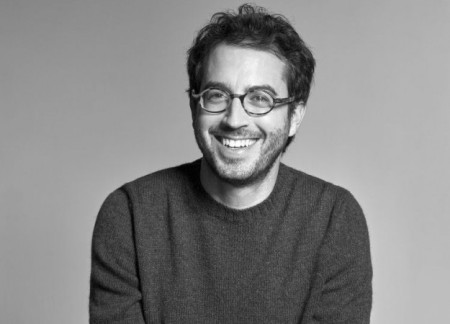Literature is the most democratic of all art forms in the world (JOANTHAN SAFRAN FOER)

My name is Caterina Celli and I will be contributing to this blog for the next 12 weeks. I was born in Rimini in 1991, where I lived until the end of the high school. My studies focused on humanistic subjects, especially Literature. I earned a bachelor degree in Foreign Languages and Literatures in 2014, and a Master degree in Modern, Comparative and Postcolonial Literature in 2017, at the Alma Mater Studiorum University of Bologna. I am now an intern at the Limerick Writers’ Centre.
_______________________________________
I read Jonathan S. Foer’s first book, Everything is illuminated, in the blink of an eye.
Maybe it was because the topic covered one of my main interests, or maybe because of the particular style he used. When I got to know, scrolling the news in the cultural issue of Corriere della Sera – a popular Italian newspaper – that his last book, Here I Am, won a prize, I found myself nodding in agreement even before reading it.
At the same time, I hesitated a little when I found out that the link would have led to an interview. Before then, Foer had always been, for me, only a name on the cover of a great book I read, and I was afraid that seeing him and listening to his answers would have affected somehow my ideas about his writings.
Well, it didn’t.
“Literature is the most democratic of all art forms in the world”, Foer says while commenting on the way he won: in fact, since it was a public poll, many readers voted for him, and he felt like he was chosen by a real public and not just by a jury made up of few people.
The idea that Literature is democratic caught my attention from the very beginning of the interview, since it implies the possibility to reach to everyone and, consequently, the power to speak to many people. Literature, then, as a common net, nourished by everyone’s possibility to participate and express one’s own opinion about it.
When asked about the autobiographical aspect of his books, Foer avoids an unique answer. Instead, he presents a more complex vision of what “autobiographical” means. According to him, in fact, there is a first and simpler meaning, concerning how many real facts described in a book really happened in its author’s life.
In this sense, Foer cannon say his books are autobiographical, since there is no relating of facts. However, there is another meaning, described as a “relating of thoughts, and feelings and sensibility”, thanks to which it is possible to apply a wider definition of autobiographical.
I found it meaningful and also inspiring that, as Foer himself says, a writer does not always write about himself, but he can write “as himself”. In this sense, one does not need to transport his own life into words, and the environment in which one lives does not matter, as long as the mind is full of ideas and thoughts which can assume on the page the shape of a fictional story filled with real feelings.
Feelings and thoughts that can change, through the years, as one grows and gets in touch with different aspects of the world around him. Foer is well aware of this, as he is asked about his own changing – especially concerning the differences between his first book and the last one. His idea is that the books he writes – the books that everyone may write, I would add – are markers, as the ones he uses on his door frame to sign his kids’ heights. A changing that cannot be seen or felt, and this is why he needs markers, in order to realize how much his idea of the world and of literature itself has changed.
At the same time, even though his books belong to him while he is writing them, during his everyday activities, Foer affirms that he feels like he loses any control over their meaning as soon as they are published. However, this is a positive thing, and I caught myself nodding again as it reminded me the idea of a democratic literature, which was confirmed by the rest of the interview, when Foer talks about the moment he realised that his books had been read by people who do not share anything with him: not the country, not the religion, even less people in his life. This led him to the idea of a literature able to go beyond the boundaries: “Books can cross these dividers that we become used to thinking can’t be crossed.”
Then, literature as democracy, the importance given to ideas and feelings in order to consider whether a text is autobiographical, books as markers of one’s own changing and as tools to overcome any divider: these are the core points of this interview.
As soon as it ended, I felt like sharing a review of this video on the Limerick Writers’ Centre blog since I feel that the same ideas are shared by those who keep working daily to support the importance of literature and poetry as a way to connect people with each other and express one’ self in a form that can reach to everyone’s intimacy, without caring of boundaries imposed from the outside.
April 15, 2017 at 9:23 am
A beautiful piece and reminds us that literature is essential for all.
April 15, 2017 at 9:23 am
🙂